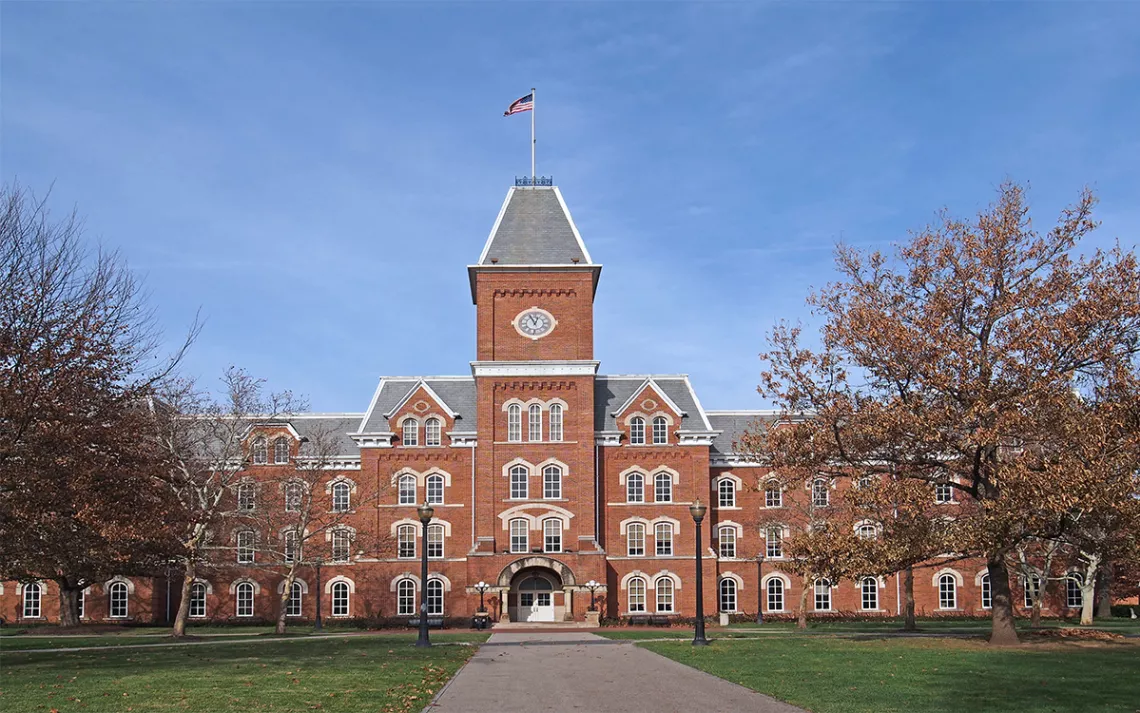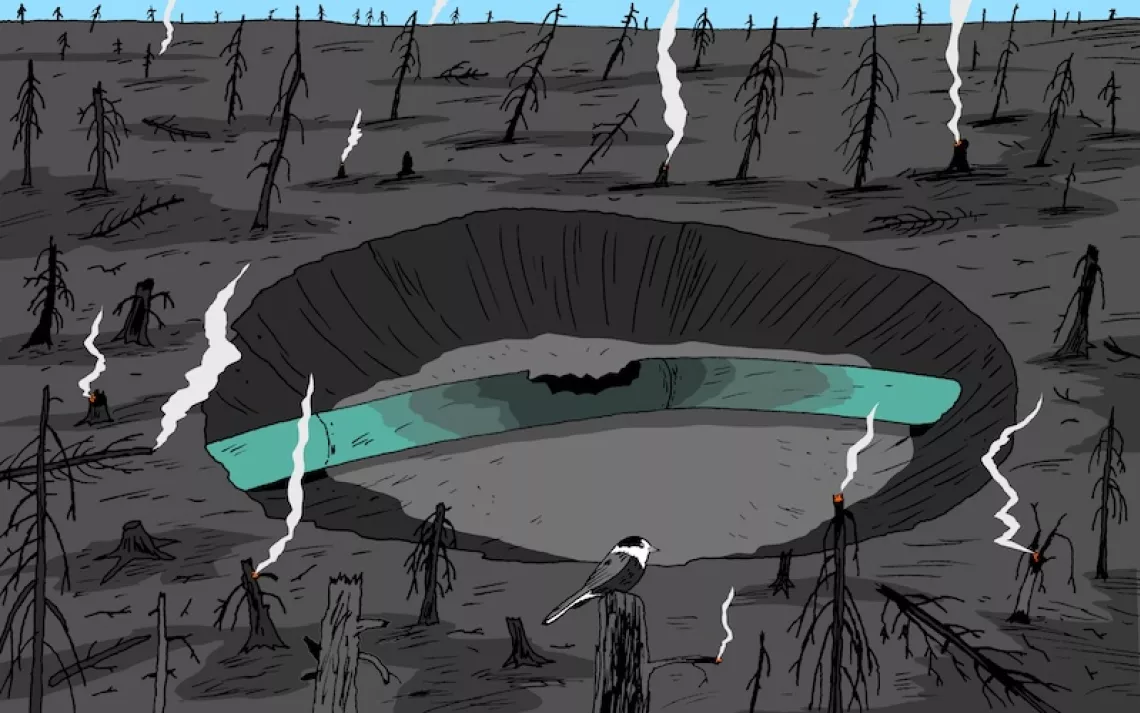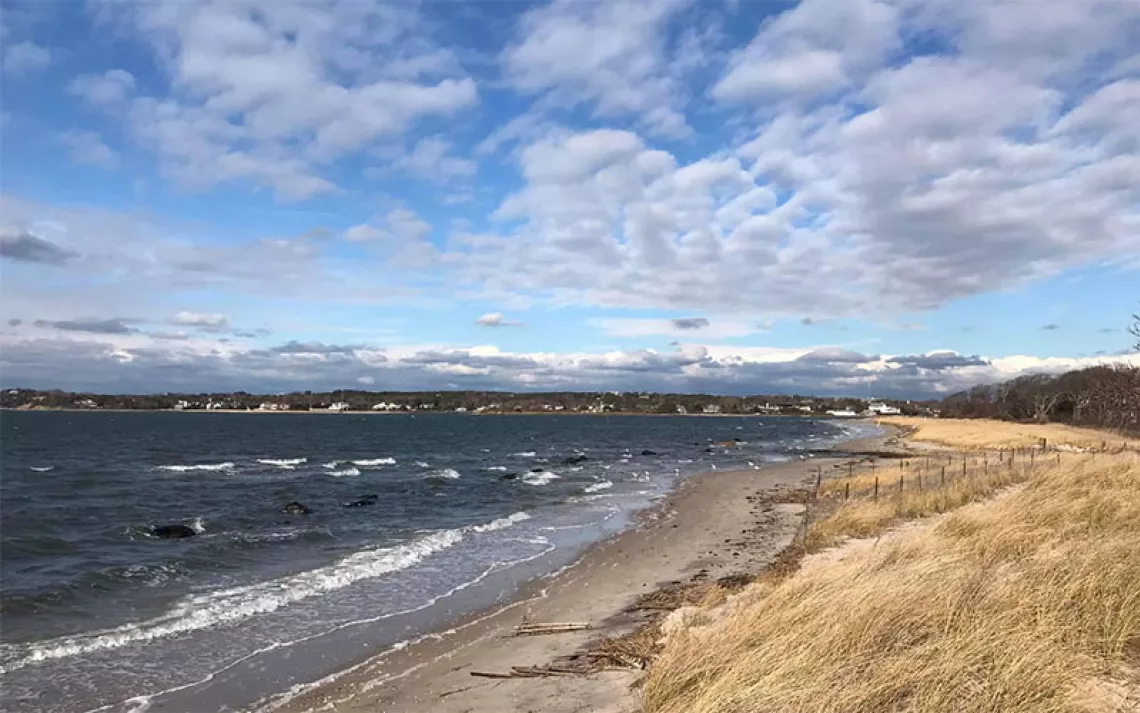College Republicans Are Ready to Talk About Climate Change
Next-gen members of the GOP have something to say and are ready to listen

Photo by peterspiro/iStock
If you care about the environment, you might think there are few interlocutors in the current makeup of the Republican Party with whom you could have a measured, thoughtful conversation about protecting public lands, cleaning up toxic spill sites, guaranteeing clean air and water for all—and especially, about climate change. Last week saw the latest effort to pull the rug out from under the nation’s monuments, in spite of overwhelming public support to keep them intact; more government agencies are scrubbing language about climate change from .gov websites, even though the majority of Americans believe global warming is human-caused; and, there’s President Trump’s move to withdraw the United States from the Paris Agreement, a decision few Americans support.
While some elected leaders of the GOP may not be listening, in the halls of our nation’s colleges and universities, the door, it seems, is open: The next generation of Republicans are ready to talk, and not just about bread-and-butter GOP principles like free markets and free trade.
“The vast majority of the people on the right side of the aisle that I’ve interacted with are more than willing to have a calm, thoughtful discussion on civil rights issues, on criminal justice, on national security combined with respect for religious tradition," says Nick Frankowski, a junior at Ohio State University (OSU) who is currently serving as the vice chair of the Ohio College Republican Federation and chair of OSU College Republicans. "What matters is dialogue.”
Does that willingness to engage extend to such issues as climate change? “We certainly acknowledge the reality of climate change,” Frankowski says. “The question is what to do about it. Our members are pretty unified that climate change is happening and that human activity is impacting that. There’s some debate as to what degree human impacts have had on climate change. But not about whether it’s real and whether it’s an issue that has to be addressed.”
The OSU College Republicans is one arm of a national organization that constitutes a sizable voting bloc. There are more than 250,000 College Republicans across the country—a number that only represents the students who have actually registered to be members and are actively involved in a chapter—and approximately 35 College Republican chapters in Ohio alone (the Ohio College Republican Federation serves as the state governing board).
The organization functions in part as a staging ground for youth looking to cut their teeth in politics and get more engaged. College Republicans send kids on campaign trips to other states, or help facilitate internships in congressional offices or state legislative offices, or campaign internships. In the meantime, student members get to engage with state and federal leaders, having one-on-one conversations or roundtables with elected officials.
Frankowski says that the College Republicans tend to leave more tactical, aggressive activism—such as standing on picket lines—to groups like Turning Point, the Young Americans for Freedom, and the Young Americans for Liberty. “The College Republicans are more discussion-oriented, where we process subjects and go about our daily lives,” he says. At OSU, members typically meet every other Wednesday. The conversation is often about politics but can also just be about getting together and hanging out.
According to Frankowski, there isn’t any tension among members about the realities of climate change. If anything, there’s more fascination with the subject. “We’re obviously very young and energetic, and we’re still figuring things out. We’re not settled into rigid positions on anything yet. The principles are consistent, but when it comes to specific issues like climate policy, we’re very enthusiastic to learn more and come to a conclusion that aligns with our principles.”
How the United States should go about protecting the environment and addressing climate change is more of the issue for College Republican members, Frankowski says. Whether or not the environment should be protected, or whether climate change itself is an issue, isn’t.
At OSU, members of the College Republicans often come from states where the fossil fuel industry is the foundation for local economies, such as West Virginia and Kentucky, and eastern Ohio. Frankowksi, who is from Cincinnati, says that College Republicans are concerned with striking a balance between addressing what they acknowledge is the growing threat of climate change while making sure that families and communities aren’t kicked to the curb. He favors a holistic approach that marries solutions to the problem with solutions on how to help people who depend on the fossil fuel industry transition into different industries and capacities.
College Republicans were generally in favor of the decision to withdraw from the Paris Agreement, often arguing that the accord, as nonbinding among parties, created an unlevel playing field. But Frankowski points out that most members wouldn’t agree with a process that obviates open dialogue on how to properly go about dealing with climate change. “A big positive of the accord is that it advanced that dialogue,” he says. “Continuing to have discussion is really important. I personally don’t have an issue with the international community coming together on an international issue. I think that’s a great thing. Having that communication, that dialogue, is really important, and I think most College Republicans would agree with that sentiment.”
 The Magazine of The Sierra Club
The Magazine of The Sierra Club






